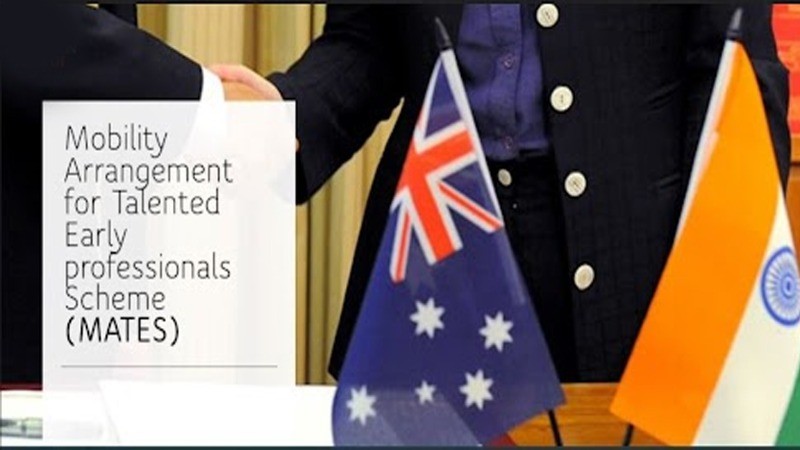
The Mobility Arrangement for Talented Early-professionals Scheme or MATES program in Australia is set to create exciting opportunities for Indian students, allowing them to pursue specialized studies and work in high-demand sectors while also supporting Australian industries, according to Australian Assistant Minister for Immigration Matt Thistlethwaite.
During his visit to India, Thistlethwaite explained that the MATES program, part of the mobility arrangement for talented early professionals, aims to equip Indian students with valuable skills to help fill workforce shortages in Australia.
“Both our nations will benefit from MATES. It provides an opportunity for young Indians aged 18 to 30 to undertake postgraduate study in Australia in specialized areas where their skills are needed. Participants will enhance their skills, and the Australian economy will benefit from skilled individuals in high-demand occupations,” Thistlethwaite said.
Introduced under the migration and mobility partnership agreement (MMPA) signed between India and Australia in May 2023, the MATES program aims to encourage two-way migration and skill exchange. It promotes knowledge transfer, allowing Indian graduates to work in Australia while addressing skill gaps in fields such as renewable energy, artificial intelligence (AI), information and communications technology (ICT), and engineering.
The program will initially offer 3,000 spots annually for Indian nationals, who will be able to live and work in Australia for up to two years. Participants can also bring dependents, who will have work rights during their stay.
Thistlethwaite recently visited Amity University in Noida to promote the MATES program and engaged with faculty and students. During the event, he addressed various questions about the opportunities available through the program.
He highlighted that fields like AI and renewable energy are particularly promising in Australia, with many job vacancies. “If you have skills and qualifications in artificial intelligence, you will be employed straight away. Similarly, in ICT and renewable energy, there are plenty of job opportunities,” he explained.
Thistlethwaite noted that Australia faces a shortage of skilled labor, making this program crucial in addressing those gaps while providing Indian students with valuable experiences that can benefit both countries.
He encouraged Indian students to view MATES as a collaborative opportunity. “It's a great chance for our nations to work together, providing educational opportunities for young Indians to study and work in Australia. This can help address skilled shortages in Australia and allow you to learn new skills that you can bring back to India, benefiting your economy,” he said.
In response to students' inquiries about visa flexibility, Thistlethwaite clarified that applicants under MATES can apply up to the age of 30 and still work beyond that age during their two-year stay. “If you apply at 29 and receive a visa, you can work in Australia even after turning 30,” he assured.
He also discussed the possibility of extending the visa duration beyond two years for those interested in further studies or permanent residency. While the initial visa is for two years, participants may apply for graduate visas or transition to a skilled visa if they meet the necessary requirements.
Regarding inquiries about expanding MATES to include fields like law or liberal arts, Thistlethwaite acknowledged that these disciplines are currently not part of the program. However, he noted that there are still opportunities for students in these areas to study in Australia through other visa categories. “You can apply through different visa schemes that offer more flexibility for postgraduate studies, even though they may not fall under the MATES program,” he clarified.